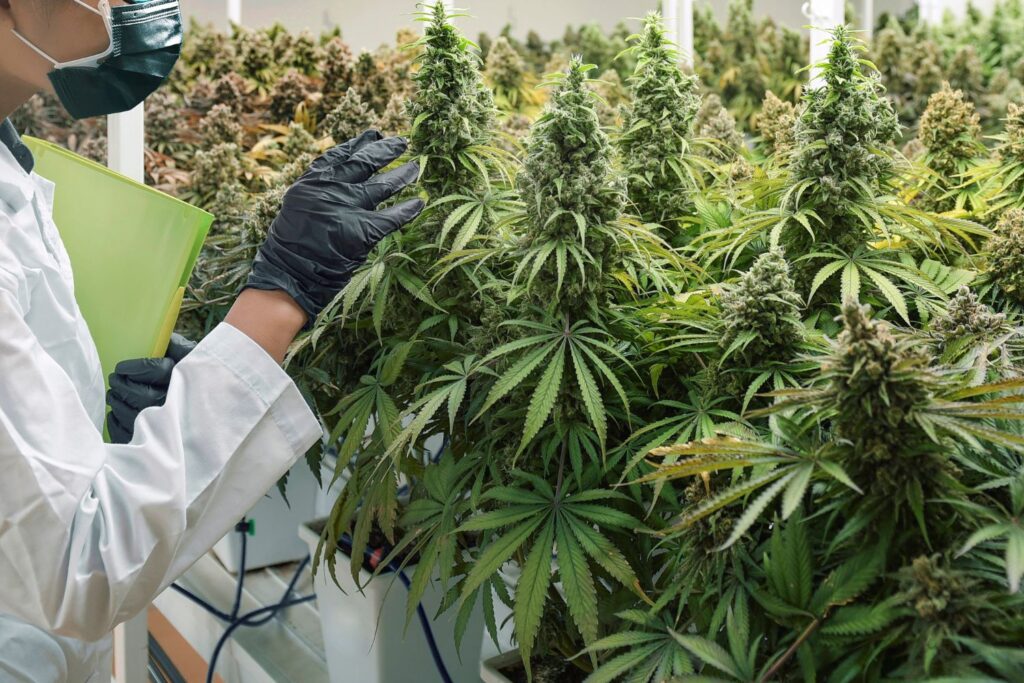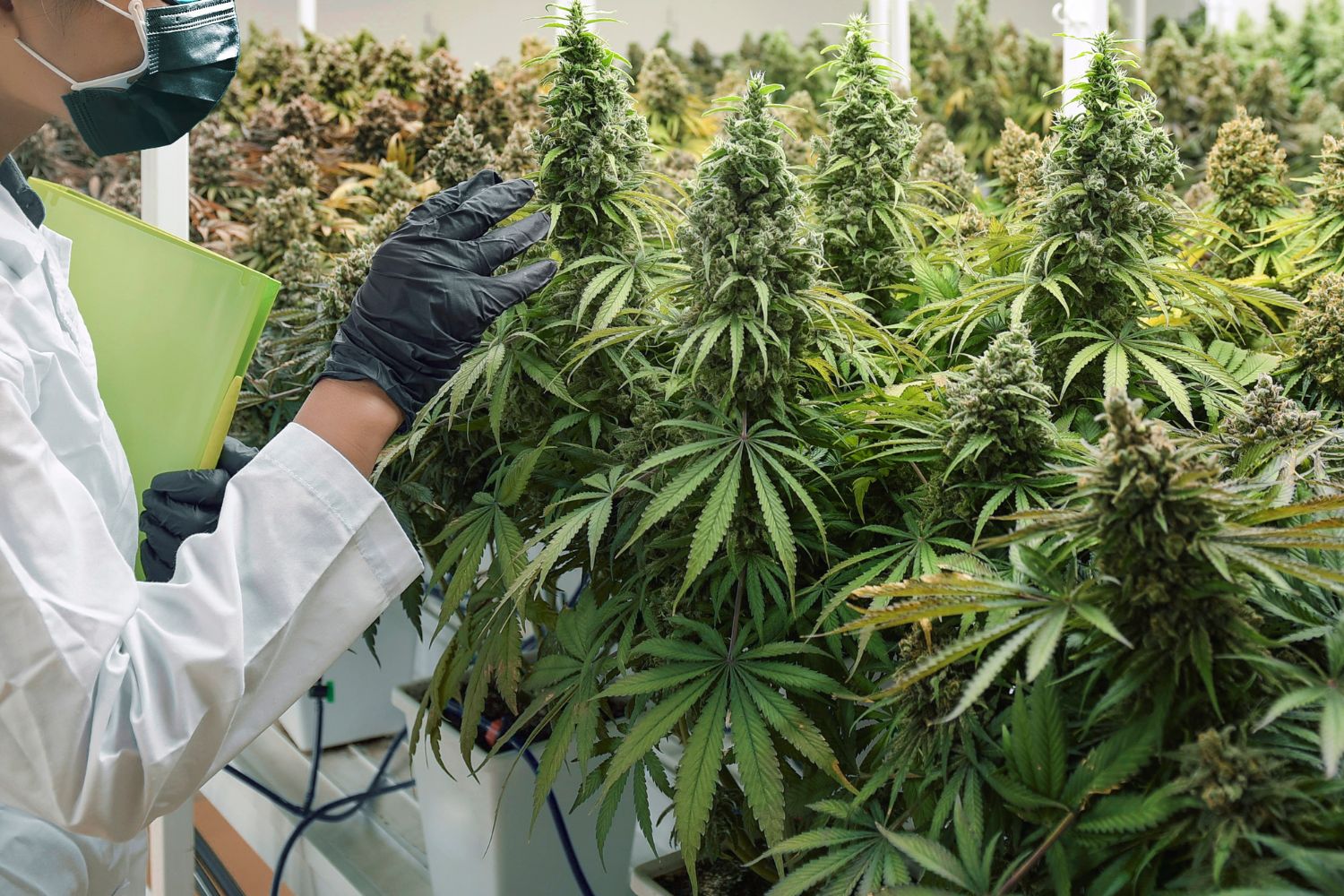When I tell people that I research cannabis, I sometimes receive a furtive gesture that implies and presumes: “We’re both stoners!”, as if two members of a secret society have met.
Other times, I receive looks of concern. “You don’t want to be known as the guy who studies marijuana,” a professional colleague once counselled. Lastly, some respond with blank stares: “Why do academics spend time on such frivolous topics?”
I’ve learned that all these attitudes reflect ignorance about the plant, which few people have learned about except through popular media or their own experiences with it.

I study cannabis, but I’m more broadly interested in how people and plants interact. I’ve studied plants from perspectives ranging between ecology and cultural history, including obscure plants and more widely known ones, such as the African baobab.
Cannabis is in another category, being one of the world’s most famous and widespread plants. Yet it’s the one for which people most commonly question my research motivations.
Cannabis has a truly global history associated with a wide range of uses and meanings. The plant evolved in central Asia millions of years ago. Across Eurasia, humans began using cannabis seeds and fibre more than 12,000 years ago, and by 5,000 years ago, people in south Asia had learned to use cannabis as an edible drug. It arrived in east Africa over 1,000 years ago.
Cannabis has been under global prohibition for most of the last century, which has stunted understanding of the people-plant relationship. Africa, Africans and people of the African diaspora have had crucial roles in the plant’s history that are mostly forgotten.
I want people to learn about cannabis history for four reasons. First, understanding its historical uses can help identify potential new uses. Second, understanding why people have valued cannabis can improve how current societies manage it. Third, understanding how people have used cannabis illuminates African influences on global culture. Finally, understanding how people are profiting from cannabis exposes inequities within the global economy.
Medicinal potential
The African history of cannabis highlights its medicinal potential, a topic of growing interest.
Advocates of medical cannabis often justify their interest by telling tales of the plant’s past. Yet the tales they tell – notably in medical journals – have been problematic. They are only about social elites and are mostly untrue.
The African past is absent from this medical literature, even though historical observers reported how Africans used cannabis in contexts that justify current interest in its medicinal potential.
For instance, in the 1840s, a British physician reported that central African people liberated from slave ships considered the plant drug
a great promoter of exhilaration of spirits, and a sovereign remedy against all complaints.
These were emaciated, traumatised survivors. Their experience justifies exploring cannabis as a potential treatment for post-traumatic stress disorder, anxiety and other conditions.
Exploitative labour
We need to understand why people value cannabis to identify and address social processes that may produce drug use.
Africans have valued cannabis for centuries, though it’s difficult to know all the uses it had, because most weren’t documented. Despite its limits, the historical record clearly shows that people used cannabis as a stimulant and painkiller in association with hard labour.
Many European travellers observed their porters smoking cannabis before setting off each day. A Portuguese in Angola stated that the porters:
affirm that it wakes them up and warms their bodies, so that they are ready to start up with alacrity.
Because labourers valued cannabis, many overseers did too.
Cannabis drug use remains associated with social marginalisation in contexts from Morocco to Nigeria.
The pan-African experience suggests using it is not a moral failing of users but is – at least in part – symptomatic of exploitation and inequity.
Africa’s place in global culture
I also study cannabis to understand how African knowledge has shaped global culture. Cannabis travelled as an element of exploitative labour relationships that carried people around the world, including chattel slavery, indentured service and wage slavery. There is strong evidence that psychoactive cannabis crossed the Atlantic with Africans.
Oral histories from Brazil, Jamaica, Liberia and Sierra Leone tell that enslaved central Africans carried cannabis. In 1840s Gabon, a French-American traveller observed a man
carefully preserving (seeds), intending to plant them in the country to which he should be sold.
The people who transported seeds shaped our modern language. Around the Atlantic, many terms for cannabis trace to central Africa, including the global word marijuana, derived from Kimbundu mariamba.
Further, the most common modern use of cannabis – as a smoked drug – was an African innovation. Prehistoric people in eastern Africa invented smoking pipes. After the plant arrived from south Asia, eastern Africans discovered that smoking was a more efficient way to consume cannabis compared with edible forms of the drug. Notably, all water pipes – hookahs, bongs, shishas and so on – trace ultimately to African precedents.
ALSO READ: High times for South Africa as Parliament takes next step towards cannabis legalisation
Drug policy reforms
Finally, understanding the plant’s African past illuminates inequities within the global economy.
Drug policy reforms worldwide have opened lucrative, legal markets for cannabis. Businesses are feverishly competing for wealth, and governments are eagerly seeking new revenue sources. The rush to profit has enabled businesses from wealthy countries to gain power in poorer countries.
Most African countries that have enacted drug-policy reforms – notable exceptions being South Africa and Morocco – did so only after foreign businesses paid for cannabis farming licences. These had always been possible under existing laws, though the governments had never made them available.
These drug-policy reforms don’t meaningfully extend to citizens of African countries. Licensing fees are either unknown or unaffordable for most citizens of the countries that have allowed commercial farming, including Zimbabwe, Uganda, Lesotho, Malawi, Eswatini and the Democratic Republic of Congo.
The countries that have allowed licensed production still prohibit traditional cannabis uses. Even as export markets grow, African citizens face criminal consequences for domestic production.
Cannabis-policy reforms in Africa have mostly benefited investors and consumers in wealthy countries, not Africans, a textbook example of neocolonialism. Further, profitable industries in Europe and North America rely on seed taken from Africa, where cannabis genetic diversity is high thanks to farmers’ plant-breeding skills.
Cannabis is the centre of industries that generate billions of dollars annually. Increasingly, this income is legal. History shows that African countries have competitive advantages for cannabis farming. Reforms should enable Africans to enjoy these advantages.
Way forward
Globally, many societies are recognising that criminalising cannabis has produced problems and has not eliminated drug use. Some African countries are developing cannabis-policy reforms that include decriminalisation and degrees of legalisation. African (and non-African) societies must address complex questions in evaluating cannabis policies.
In any case, the plant’s African past provides insight into both long-term and emerging issues in humanity’s interactions with cannabis. This is why I study African cannabis.
Chris S. Duvall, Professor of Geography, University of New Mexico
This article is republished from The Conversation under a Creative Commons license. Read the original article.













